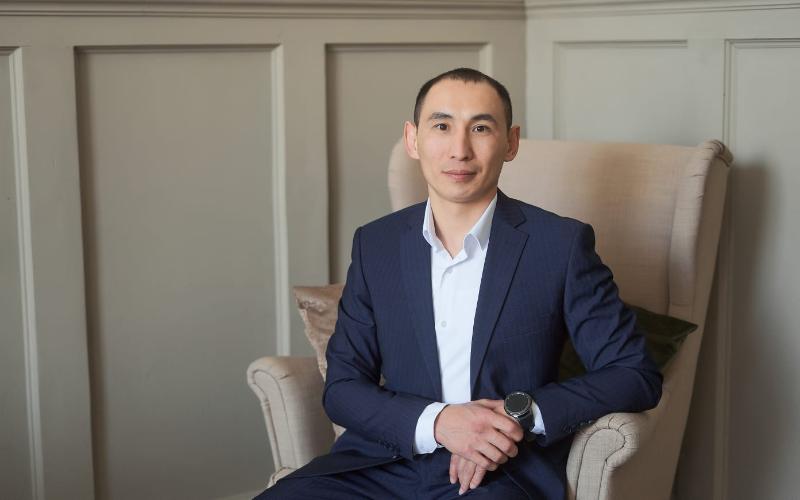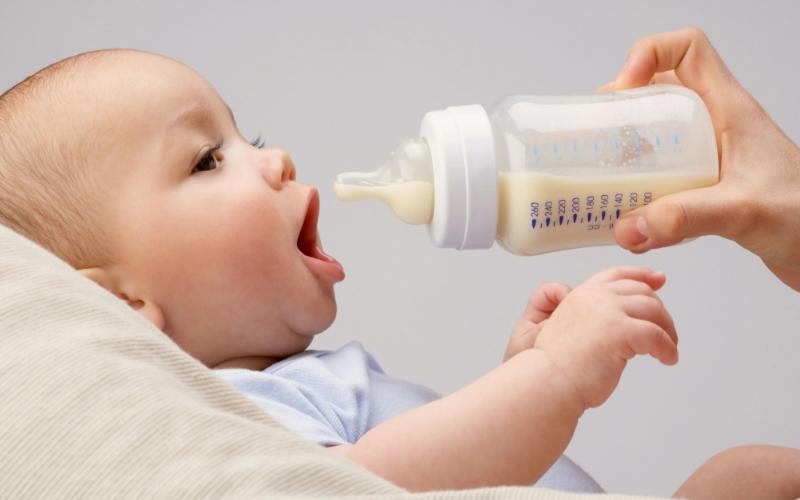Kokshetau's 'Gormolzavod' Grows 40% Annually - Yersain Zhaksylyk

Yersain, tell us a little about yourself and 'Gormolzavod.'
— 'Gormolzavod' is our family business. My father, Dulat Nasyrovich, founded it, but unfortunately, he passed away in 2005. Afterward, my brother Asen Zhaksylyk took over. Since it's a family business, I helped him, focusing on product lines and commercial issues. In 2021, my brother was invited to public service, and I became the director of 'Gormolzavod.' We make strategic decisions collectively at family meetings, trying to maintain our values. Currently, we adhere to a dairy processing strategy, using 100% natural ingredients, and proudly retain recipes fr om the Soviet era.
How is the production cycle organized at the factory today?
— We process about 80 tons of milk daily: 40% from personal subsidiary farms (LPH) and 60% from dairy farms (MTF), with around 5% from our own farm. Under Asen Dulotovich, it was 80% from LPH and 20% from MTF, but now, thanks to state support and strategic actions, we're strengthening MTF's influence.
You're planning to build a new farm: what's its focus?
— We plan to expand our farm. Honestly, we debated on the direction and technologies (parallel, carousel, or robots). I supported parallel for ease in labor, launching, and increasing herd size and milk yield. However, my brothers preferred automation, using robots to reduce human error while improving milk quality and quantity. This also betters cow care, impacting long-term results. We're working with Chinese representatives on a dairy farm modernization project, focusing on forage, installing irrigation systems, and retaining meltwater to improve feed tables in our continental climate.
Why did you choose to use China's experience and technology?
— Last year, I visited China, and this year, my brothers toured a dairy farm there. As a family, we saw their achievements in processing. China has made breakthroughs, driven by a large population to feed and government-supported dairy consumption from birth. They lack products like butter or cheese due to taste preferences but have a vast range of flavored milk and yogurts.
How is Kokshetau's 'Gormolzavod' evolving in the region? Are you positioning as a local brand or aiming for national reach?
— Our production grows about 40% yearly. Locally, we strengthen positions in perishable products like liquid dairy due to shelf life limitations. For products with longer shelf lives, like ice cream, butter, and soft cheeses, we target the national market, expanding to other regions. Our main ice cream consumers, kids aged 5-10, request more flavors, prompting us to develop family-format ice cream with various toppings and assortments.
We conduct surveys, listening to feedback, and often host children's tours at the factory, making them part of the process by asking for suggestions. This engagement is crucial.
Why focus on ice cream? What triggered this strategic choice?
— In 2021, a client and partner survey highlighted unmet demands for ice cream. We already had a successful product, so we developed a clear plan to expand our ice cream and urban dairy lines, launching a new small-pack ice cream facility for cones and bars.
What economic impact did narrowing the product range and refocusing have?
— Companies choose their paths. Entering a new market is challenging due to significant resource demands. We chose to enhance successful niches, removing low-margin and inconsistent-quality products. Focusing partly on ice cream aims to boost profitability.
How do you view the potential of Kazakhstani dairy brands abroad?
— Kazakhstan has vast dairy industry potential but faces challenges like climate affecting quality feed production. Collecting meltwater and field irrigation is crucial for producing cost-effective, quality feed, which is a key issue for farmers. Our dairy products are in demand locally and abroad for their eco-friendliness and quality, adhering to strict standards.
Promoting Kazakhstani products requires factory cooperation to form a technological hub, reducing market entry costs. Unified efforts make market expansion financially viable, appealing to distributors and retailers.
Is there a likelihood of such unification, and when?
— I expect it soon due to rising competition. With players from Russia and Belarus, protecting and fulfilling our market needs is priority one. International expansion is our second goal, opening new opportunities.
What are the main economic challenges facing the dairy industry in Kazakhstan today?
— Most challenges stem from geopolitical instability, complicating long-term forecasts. We must remain agile, adjusting strategies frequently, sometimes even weekly, competing fiercely for milk supplies.
If you were to launch a new brand from scratch in 2026, wh ere would you start? What product, idea, and market?
— I'd analyze global players, assessing project viability for Kazakhstan, and develop a new product and brand with a unique offer based on market conditions. Currently, we're increasing protein production for traditional products, thanks to grants from the Science Fund and the 'ATU' Institute. This includes new dessert and traditional products, focusing on popular flavors like kurt, aiming for large retail distribution and consistent product quality.
About 'Gormolzavod'
Built in 1965 as a key dairy enterprise, it became JSC 'Sut' in 1998–1999, later transforming into LLP 'Gormolzavod.' The factory produces up to 7,300 tons annually, including ice cream, cheese, butter, and fermented products. A new dairy farm for 1,200 cattle is planned for 2025, with a daily milk production capacity of up to 30 tons. The factory is renowned for preserving Soviet-era natural dairy recipes, including the famous Kokshetau ice cream.
You can learn more about how to make a dairy plant profitable directly from the presentation by Yersain Zhaksylykov at AqAltyn — the annual congress that brings together key players in the dairy industry of Kazakhstan and Central Asia. The event will take place on 24–25 November 2025 in Shymkent, Kazakhstan. Registration is available via the link.
The General Partner and Key Engineering Partner of AqAltyn is Borte Engineering.
As a leading national manufacturer in Kazakhstan, Borte Engineering develops high-tech equipment for the food industry, with its quality confirmed by inclusion in the Register of Domestic Producers. The company successfully cooperates with enterprises across Central Asia, strengthening the region’s economy.










